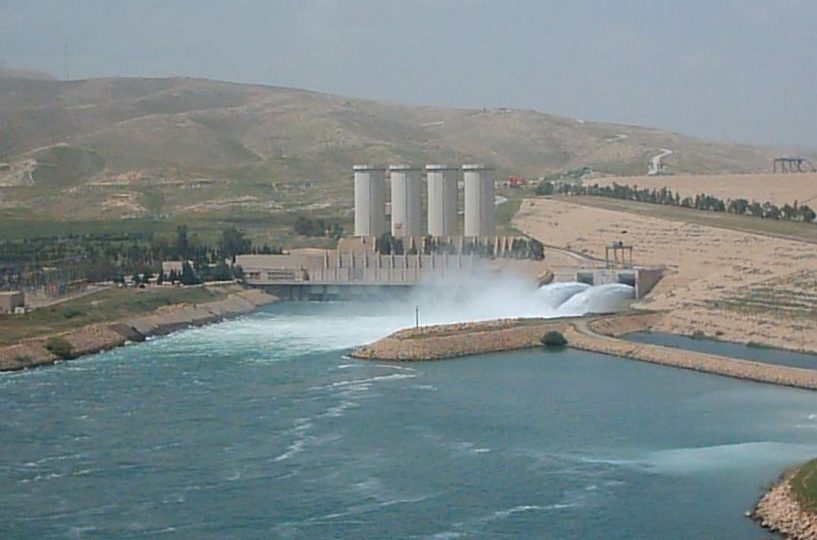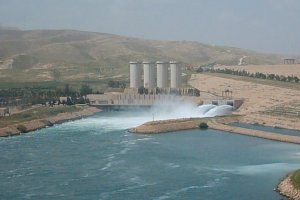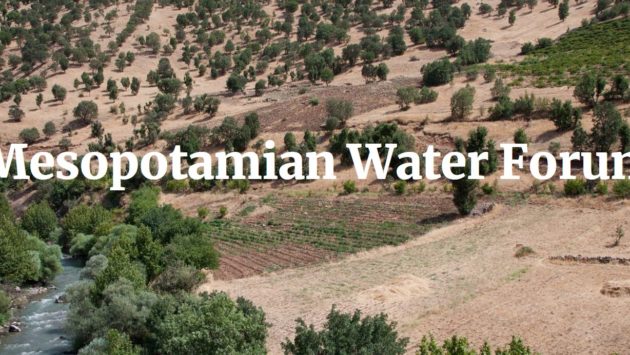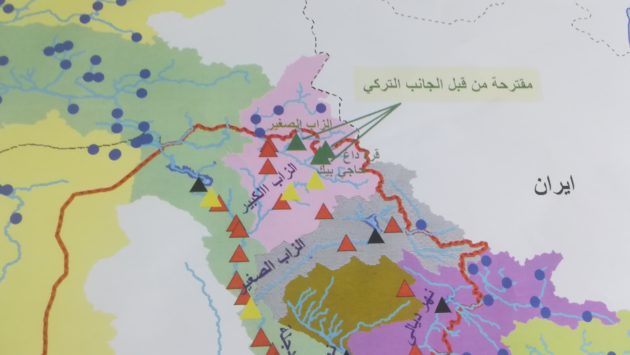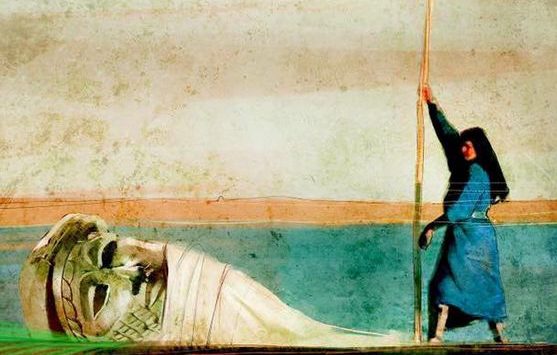Iraq’s Water Resources are Not for Sale
Dr Hassan Al-Janaby
Recently a post was published on Facebook by Dr. Hasan-Al-Janaby, an Iraqi academic and expert on water issues, in which he expresses his view of Iraq’s relationship with Turkey over the region’s water resources, and the dangers posed by Ilisu and other large dams:
The post was written in response to a publication by Azzam Alwash of Nature Iraq on the website of the Wilson Center, an American think tank tackling global issues. Mr. Al-Janaby felt there should be a counter-response, as an Iraqi citizen first and a specialist in water resources second.
In his article Alwash suggests a solution for both the Mosul Dam and the Ilisu Dam issue. However we believe in this publication the Iraqi national interest is greatly underestimated. A sense of responsibility is needed. We believe the solution Alwash proposes to international public opinion and the United Nations is in opposition to the official Iraqi position and public opinion. Iraq is against the construction of Ilisu Dam on the Tigris River. This position is worthy of support because it aims to protect the sovereignty of the country and takes into account international laws in order to oppose dam construction that will affect Iraq negatively.
Mr. Alwash basically suggests that the Iraqi government should pay Turkey for water with money or other resources. This is money that would be used for the continuous maintenance of Mosul dam (up to 3 billion dollars it is suggested). The suggestion therefore is to dismantle Mosul Dam and complete Ilisu Dam. Alwash notes that evaporation from the surface of the lake formed by Ilisu Dam is less than the evaporation from Mosul Dam lake. He also suggests for UNESCO and the Unites States to donate money to turkey in order to save the historical sites of the areas that will be affected by Ilisu Dam (such as Hasankeyf). The main idea of Alwash is that Iraq should buy the Hydroelectric power generated by Turkey’s Ilisu Dam. This implies that Iraq would pay Turkey for the control of the Tigris River! We do not believe that allocating Iraq’s budget this way this is the best way to build peace and cooperation in the region and to safeguard the Iraqi Marshes.
In response to Mr. Alwash, Dr. Al-Janaby writes:
- What bothers me the most is not the fact that this suggestion is politically and practically impossible, but the scandalous degradation of Iraq’s national interests. Iraq would be paying money in return for Turkey’s complete control of Iraq’s water resources, leaving the country basically to beg for water from Turkey.
- Ilisu Dam is to be completed even without Iraqi ‘sponsorship’. What guarantees does Iraq have that Turkey would willing to share the resources of the Tigris River with its downstream neighbours? Both neighbours might have different priorities (farming, preservation of the Marshes), especially in times of drought. How can parties agree on different priorities?
- Turkey has tried for decades to obtain funding from other countries and international organisations for the Ilisu Dam project. This would imply international approval and would permit Turkey to turn down any criticism that Ilisu Dam is against international law, and that it would affect the Tigris River basin countries negatively and create unwanted tension in the region.
- The Swiss-Austrian-German consortium withdrew its financial support from the Ilisu Dam project after civil society demonstrated that the project is against international law and would be disastrous for the environment and heritage of the region.
- Azzam Alwash presents himself as an activist for the Iraqi Marshes. He has invited many international journalists to Chibayish. However, his call to leave the fate of the Marshes in the hands of the Turkish, will add another dimension to the challenges that the people of the Marshes and the South of Iraq are facing. Especially after years of drought and water scarcity, and all advocacy that has been undertaken to halt the construction of Ilisu Dam.
- Finally, Iraq’s interests are not for sale. Even though its issues are complex, these should be solved in cooperation with the international community and to the best of its efforts.
I call for a better bilateral relationship with our Turkish neighbour, especially when it comes to water resources. The relationship should be based on collaboration and mutual benefits, respecting each other’s sovereignty as well as international law. Selling our own water resources as well as our sovereignty is not a solution. Iraq should not give up on its own vital interests, but develop appropriate solutions in cooperation with its neighbours.

